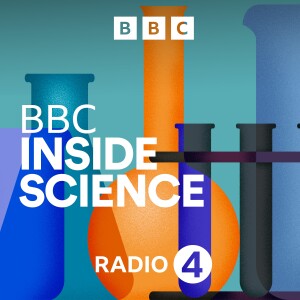
Engineering Around Mercury, Science Festivals, and The Rise of The Mammals
 2022-07-21
2022-07-21
Download
Right click and do "save link as"
How hard is it to get to Mercury and why are we going? Also, do science festivals work? And why did mammals survive when dinosaurs died? Marnie Chesterton and guests dissect.
As this programme went out, scientists and engineers eagerly wait for new images of the planet Mercury to arrive, snapped from a speeding probe passing just 200km from the surface, as it desperately tries to shed some velocity on its seven-year braking journey. ESA/JAXA's BepiColombo mission to Mercury is using gravitational swing-shots (just four more to go) to lose enough energy to eventually, in Dec 2025, enter orbit around the planet closest to our sun.
Dr Suzie Imber of Leicester University has skin in the game, being co-investigator on one of the instruments that will eventually be able to teach us more than we've ever known about this bizarre world.
Suzie is also last year's winner of the Royal Society's Rosalind Franklyn Award, and works hard doing science outreach talks and events to help inspire the next generation of scientists and engineers.
Thurs 23rd June is International Women in Engineering Day, celebrating remarkable engineering as a career option. Report Emily Bird goes along to the Great Exhibition Road Festival to see how science festivals such as this one can help raise the profile of engineering and scientific endeavours in the society of tomorrow.
One thing most kids like is Space. The other is dinosaurs. But what about long-dead Mammals? Prof Steve Brusatte of Edinburgh university is a palaeontologist and author whose last book on dinosaurs even led to him being consulted for the latest film in the Jurassic Park franchise. Why then does his new book focus on furrier beings in The Rise and Reign of The Mammals? He tells Marnie of the exciting millions of years of evolution that led to us, after the dinosaurs croaked their last,.
Presented by Marnie Chesterton
Reporting by Emily Bird
Produced by Alex Mansfield
view more
More Episodes
Net Zero
 2023-04-27
2023-04-27
 2023-04-27
2023-04-27
Covid – missing link found?
 2023-04-20
2023-04-20
 2023-04-20
2023-04-20
Sweet Science
 2023-04-13
2023-04-13
 2023-04-13
2023-04-13
Science superpower?
 2023-04-06
2023-04-06
 2023-04-06
2023-04-06
Covid leaks and conspiracies
 2023-03-30
2023-03-30
 2023-03-30
2023-03-30
Antarctic Ice Special
 2023-03-23
2023-03-23
 2023-03-23
2023-03-23
Abundant energy
 2023-03-09
2023-03-09
 2023-03-09
2023-03-09
Vegetarian school dinners
 2023-02-23
2023-02-23
 2023-02-23
2023-02-23
Towards Net Zero
 2023-02-16
2023-02-16
 2023-02-16
2023-02-16
Chatbot plagiarism
 2023-02-09
2023-02-09
 2023-02-09
2023-02-09
The UK's first satellite launch
 2023-02-02
2023-02-02
 2023-02-02
2023-02-02
Game changers
 2023-01-26
2023-01-26
 2023-01-26
2023-01-26
A Scientifically Superior Christmas Dinner
 2023-01-19
2023-01-19
 2023-01-19
2023-01-19
Biodiversity
 2023-01-05
2023-01-05
 2023-01-05
2023-01-05
Killer smog
 2022-12-29
2022-12-29
 2022-12-29
2022-12-29
Science funding
 2022-12-22
2022-12-22
 2022-12-22
2022-12-22
Climate science and politics
 2022-12-15
2022-12-15
 2022-12-15
2022-12-15
012345678910111213141516171819
Create your
podcast in
minutes
- Full-featured podcast site
- Unlimited storage and bandwidth
- Comprehensive podcast stats
- Distribute to Apple Podcasts, Spotify, and more
- Make money with your podcast
It is Free
- Privacy Policy
- Cookie Policy
- Terms of Use
- Consent Preferences
- Copyright © 2015-2024 Podbean.com


